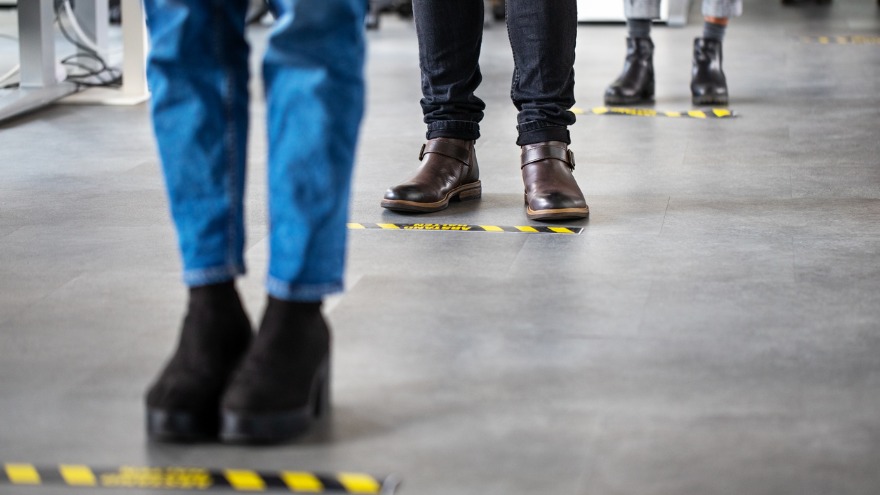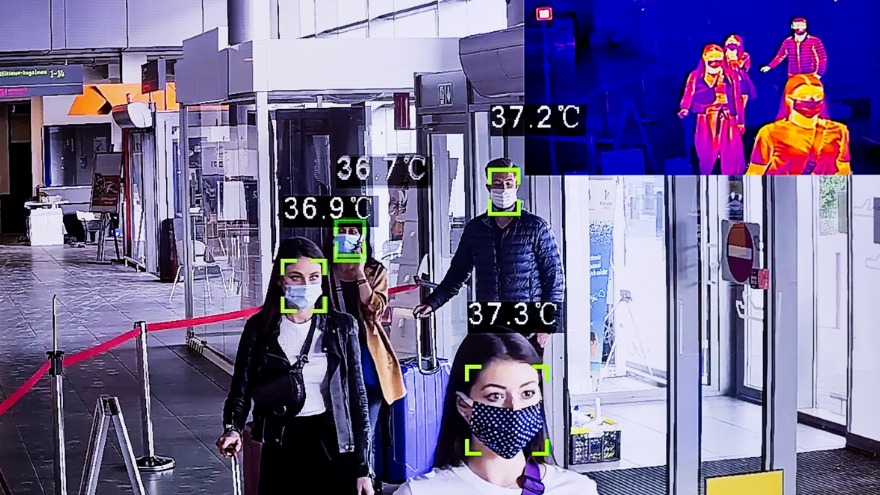Among the enduring effects of coronavirus, even after it subsides, will be greater emphasis on not only health, but also security. Of the many things this year has taught us, one is that you can never be too prepared.
And being prepared is right up Mark Cartotto’s alley. Cartotto is complex director of security and risk management for Caribe Royale Orlando in Florida. Since the advent of the pandemic, his top priorities have shifted to considering the travel patterns of guests and employees and the stringent enforcement of mask wearing by guests, who may not always faithfully abide by the requirement.
More: Are You Responsible for Mask Policing at Events?
Smart Meetings spoke with Cartotto about what new security trends next year may have in store.
Managing the Physical Space
The world of event security now has more to consider. Although COVID vaccines are on the way for many, gathering large groups of people still invites the risk of individuals getting sick. And the more frequented the area, the higher the risk.
Cartotto sees more use of technology to help streamline operations and target areas that may pose an elevated risk. “I would not be surprised to see heat mapping utilized through a property’s video management software (VMS), a feature that was most often used as a way to maximize revenue within retail or sales environments. VMS is now starting to be used to help identify areas that need to be sanitized more frequently than others,” he says.
This practice has been implemented by most—if not all—hotels, but using VMS could help hoteliers identify high-touch areas not previously thought about. Knowing how many people are allowed in one space helps as well, but that isn’t an easy thing to stay on top of. Which leads us to the next trend Cartotto sees in the near term.
He continued: “Another tool would be people-counting technology within access points of meeting spaces for larger events and trade shows to assist in monitoring occupant loads and giving attendees options to visit less crowded areas during specific times. Due to the vast number of asymptomatic cases, I also see face masks and coverings staying a requirement within establishments longer than temperature checks.”
With COVID vaccines now a reality, how much longer is yet to be determined—especially since it’s not yet known if vaccinated persons can still transmit the virus.
Cybersecurity
In a survey by Endless Events, it was found that only 5.3 percent of planners believe cybersecurity should be a priority for events. With the recent boom in hybrid and virtual events, many experts say this number is disturbingly low.
Without taking deliberate precautions, meeting planners and their attendees’ data, including names, phone numbers and addresses, could be left vulnerable to hackers.
So, what can planners do to increase cybersecurity? Good places to start are by making sure your venue has WPA-encrypted Wi-Fi; uses password managers, such as Dashlane and Lastpass, which creates strong, randomized passwords for stronger protection; and uses two-factor authentication for logins. With more and more virtual events, the importance of meetings professionals being proactive against cyber threats has only increased.
Endless Events has a detailed webinar on cyber attacks and how to set up barriers against them.
What Meeting Planners Should Ask Hotels

Planners know to be up to date on the documented protocols of hotels that follow, local, state and federal guidelines, but that’s just the start. According to Cartotto, before booking a hotel, planners should ask several questions. Some of these you may have already thought about, but a review is worth your time.
- Is the property in an area with a significant number of reported cases or trending higher over the past few weeks?
- Does the property have adequate meeting space to accommodate the number of attendees while safely meeting the standards for social distancing?
- Is there signage for masks and other face coverings?
- Is there an option to have an event in an outdoor event space?
- What safeguards does the property take for events that have a food and beverage component to it?
Safety trends and guidelines are being constantly updated, and it’s important that these changes are always communicated to employees. When asked what it’ll take for a property to ensure safety for its guests, Cartotto said “a commitment by the property, its leadership and all its employees.”




